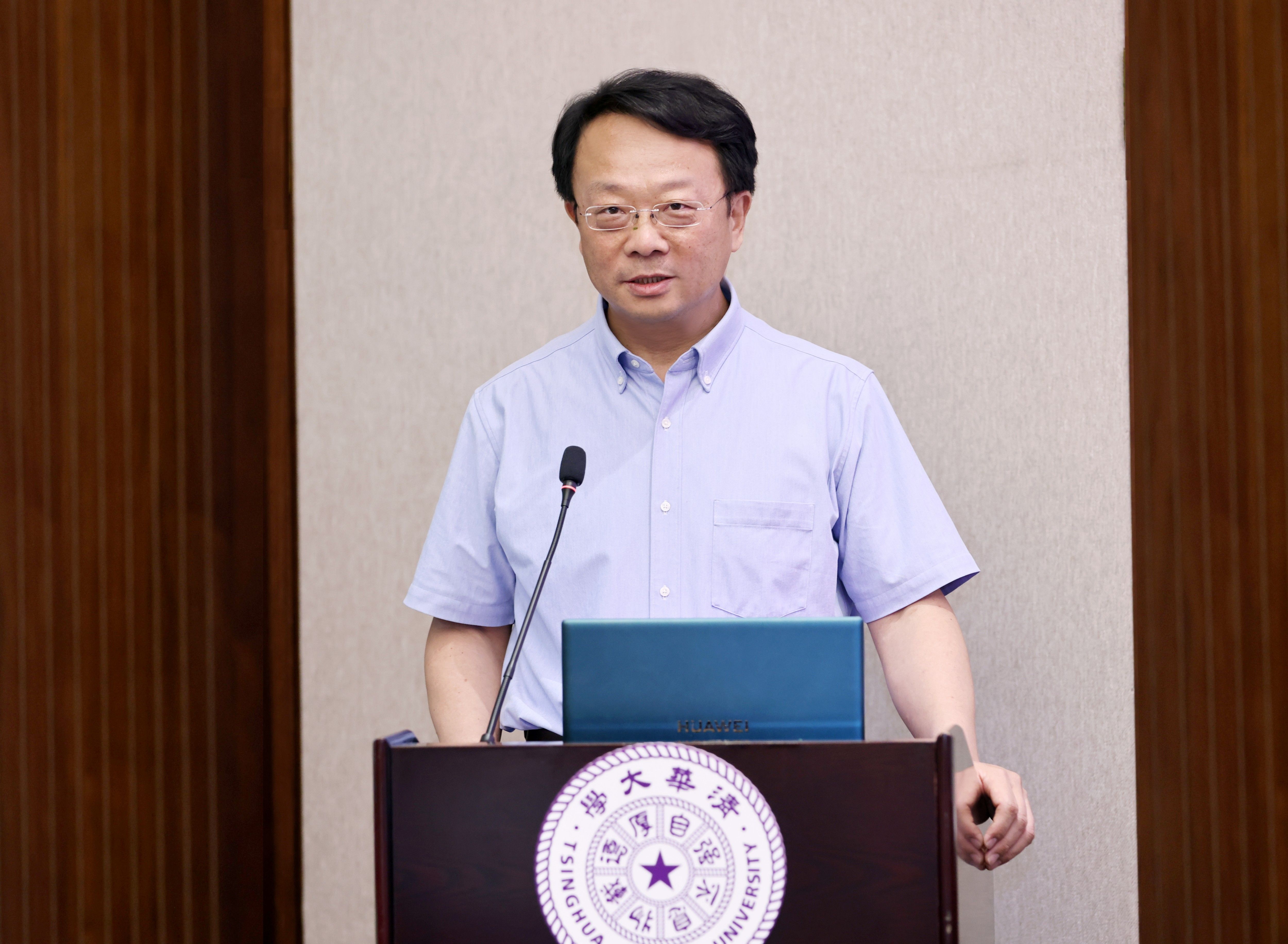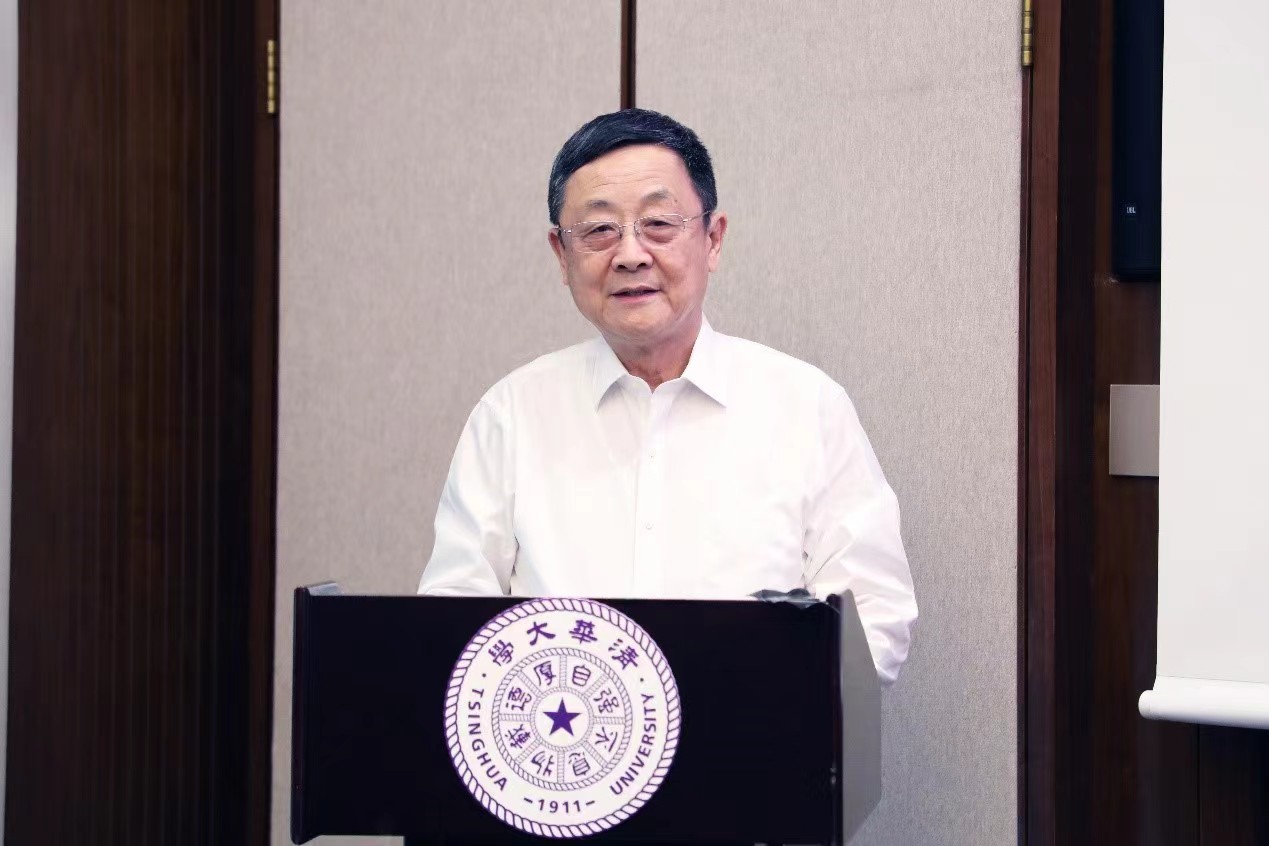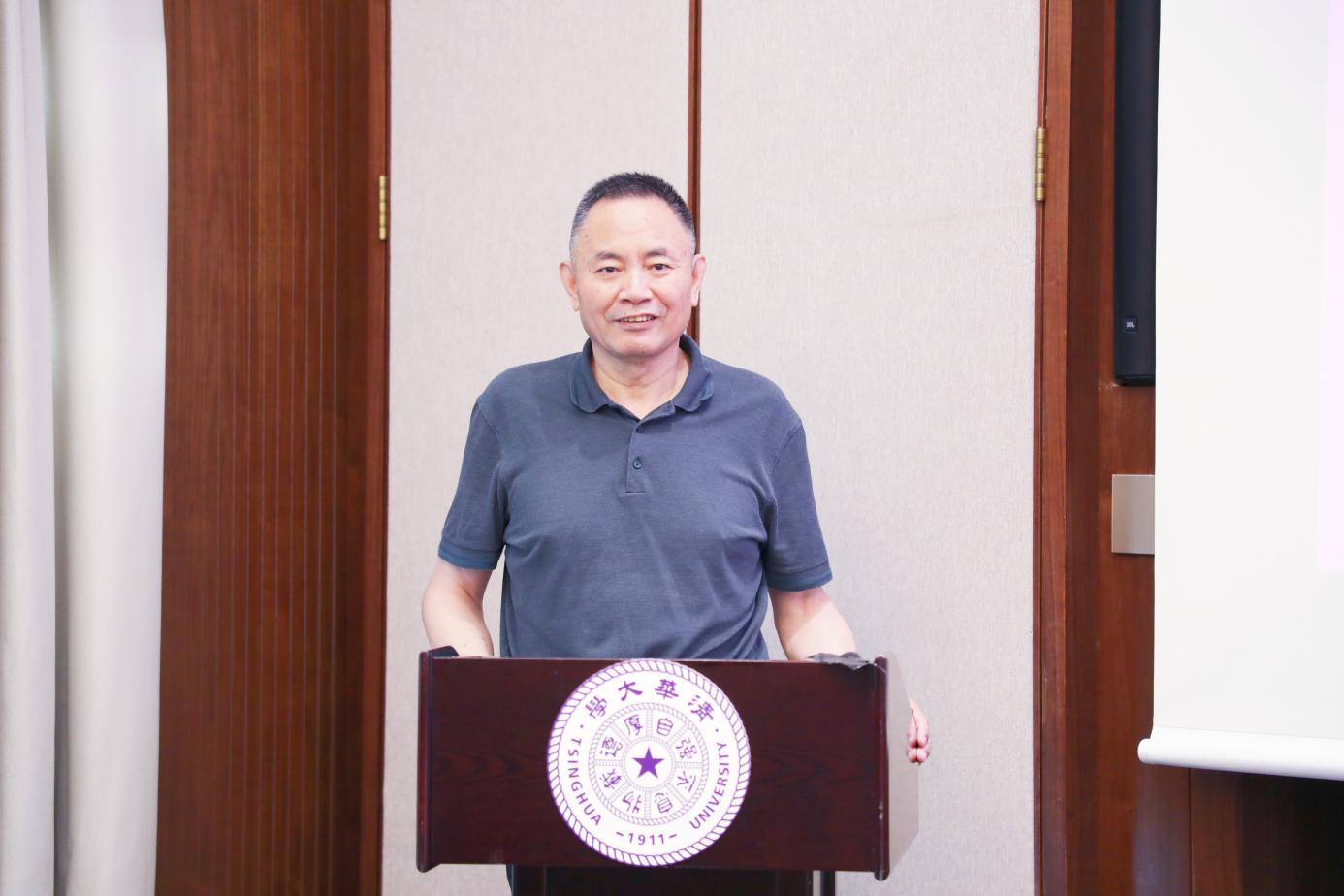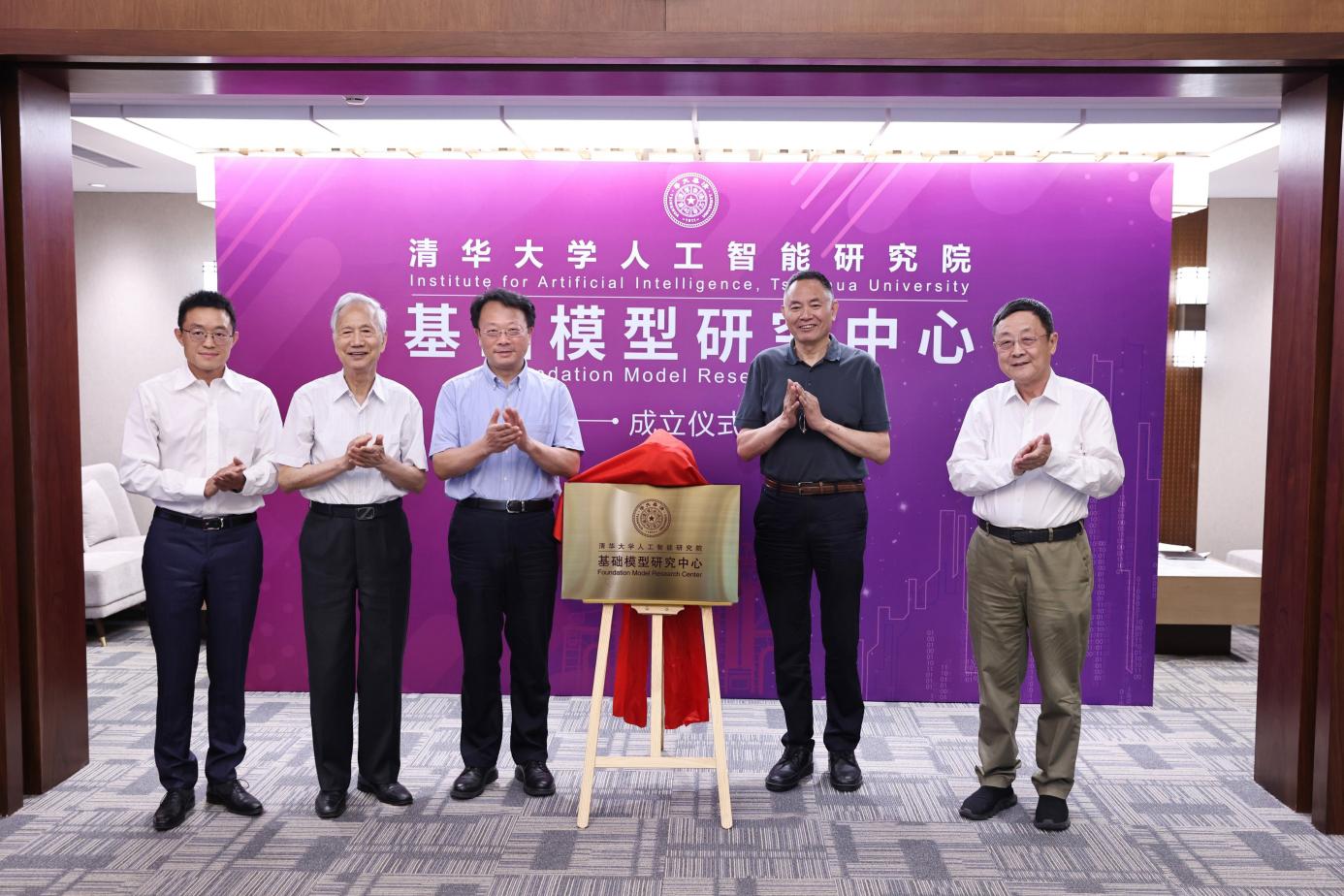In its latest effort to explore the forefront of the science and technology of foundation models, as well as to promote the innovation and application of artificial intelligence across diverse fields, Tsinghua’s Institute of Artificial Intelligence recently launched the Foundation Model Research Center in Beijing.
Wang Xiqin, president of Tsinghua University; Zhang Bo, academician of the Chinese Academy of Sciences and honorary dean of the Institute of Artificial Intelligence of Tsinghua University; Wu Jianping, academician of the Chinese Academy of Engineering, dean of the Institute for Network Sciences and Cyberspace of Tsinghua University, and director of the Zhongguancun Laboratory; Zhang Yaoxue, academician of the Chinese Academy of Engineering and director of the Institute of Artificial Intelligence of Tsinghua University; Jin Li, deputy director of Qinghai Industry and Information Technology Department, and Shi Yuanchun, president of Qinghai University, attended the founding ceremony.
Professor Sun Maosong, executive vice director of the Institute of Artificial Intelligence of Tsinghua University, was appointed as the chief scientist of the research center during the ceremony. Professor Tang Jie from the Department of Computer Science and Technology was appointed as the director of the research center, along with appointed deputy directors professor Huang Minlie and professor Liu Zhiyuan from the same department. The research center will gather experts from various disciplines and departments within and beyond Tsinghua University to conduct collaborative research on foundation models in the future.

Wang Xiqin expressed his gratitude to all faculty and staff members who participated in the planning, design and organization of the research center. He pointed out that foundation models are crucial in advancing the development of the general artificial intelligence. Facing the world's frontiers of science and technology, the establishment of the research center by Tsinghua aims to strengthen team science and disciplinary development in related fields. It is hoped that the research center can strengthen overall planning and actively explore innovative governance modes. It is necessary to strike a balance between individual and collective interests, inheritance and innovation, applied and theoretical research, as well as coordinate development and security, and promote the integration of both science and the humanities. Wang emphasized the importance of fully leveraging the centralized and unified leadership of the Party, and promoting cooperation among the government, educational institutions, enterprises, and other stakeholders, while strengthening team science. He also hopes to see Tsinghua University harness its advantages in comprehensive disciplines to integrate resources and create more synergy between various departments and schools, to promote the innovation and application of foundation models for artificial intelligence, and to make significant contributions to the independent control of key core technologies in China and nurturing top-notch and innovative talent on our own.

Wu Jianping recognized Tsinghua’s artificial intelligence scholars for their achievements regarding foundation models and encouraged them to pursue excellence and innovation. He encouraged the research center to make contributions and breakthroughs in artificial intelligence technologies, applications and security.

Zhang Yaoxue praised the Institute of Artificial Intelligence of Tsinghua University for its leading role in artificial intelligence research and education. He expects that the new center can further enhance the development of Tsinghua’s artificial intelligence-related disciplines, research projects, and industrialization.
The ceremony also featured representatives of the Department of Computer Science and Technology, the Think Tank Research Center, Qinghai Industry and Information Technology Department, and ZhipuAI, to deliver speeches. They expressed their support and expectations for the center and their innovative research and application of foundation models. They also emphasized the importance of interdisciplinary and cross-sectoral collaboration in the field of artificial intelligence.

From the Department of Computer Science and Technology
Editors:John Paul, Li Han

